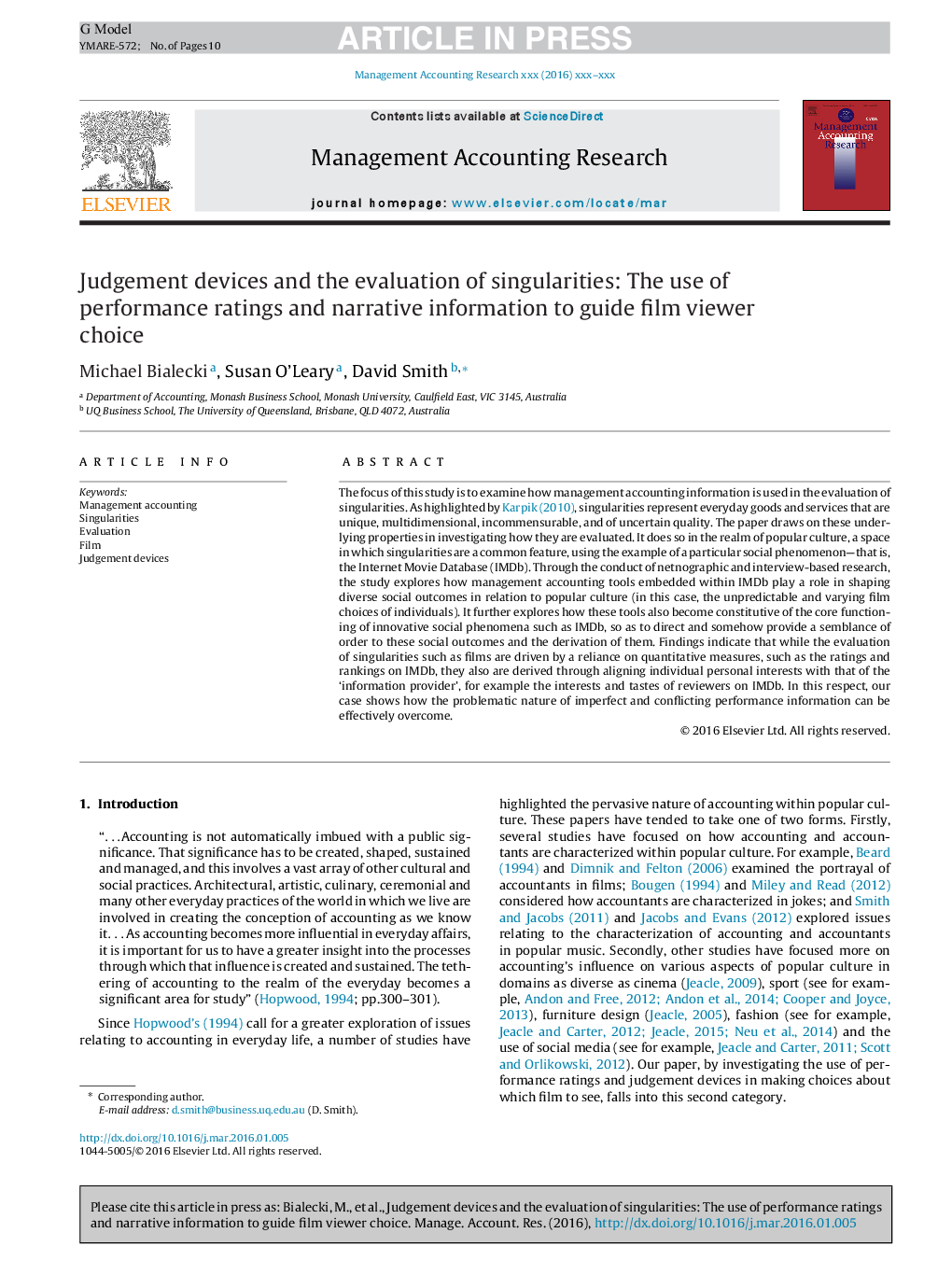ترجمه فارسی عنوان مقاله
دستگاه قضاوت و ارزیابی تکالیف: استفاده از ارزیابی عملکرد و اطلاعات روایتی برای هدایت بیننده انتخاب فیلم
عنوان انگلیسی
Judgement devices and the evaluation of singularities: The use of performance ratings and narrative information to guide film viewer choice
| کد مقاله | سال انتشار | تعداد صفحات مقاله انگلیسی |
|---|---|---|
| 97972 | 2017 | 10 صفحه PDF |
منبع

Publisher : Elsevier - Science Direct (الزویر - ساینس دایرکت)
Journal : Management Accounting Research, Volume 35, June 2017, Pages 56-65
ترجمه کلمات کلیدی
حسابداری مدیریت، منحصر به فرد، ارزیابی، فیلم، دستگاه قضاوت
کلمات کلیدی انگلیسی
Management accounting; Singularities; Evaluation; Film; Judgement devices;

